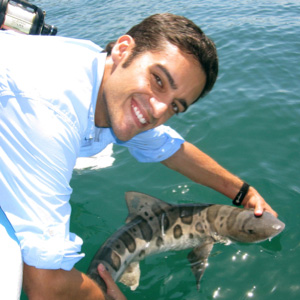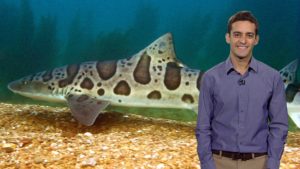Andrew P. Nosal is currently a postdoctoral researcher at Scripps Institution of Oceanography, where he conducts research on the behavior, ecology, and conservation of sharks and rays. Nosal is most interested in the causes and consequences of movement phenomena like aggregation (grouping) behavior, sexual segregation (spatial separation of males and females), and seasonal migration. He works closely with the Birch Aquarium and various media outlets to educate the public about sharks and rays and to dispel myths about these amazing animals. He is passionate about communicating science and, as a PhD student, received two awards for best student oral presentation at international conferences in Minneapolis, MN and Sapporo, Japan. When Nosal is not following sharks and rays, he loves hanging out and traveling with his wife and young daughter.

Talks with this Speaker
Not Just on Vacation: Why Leopard Sharks Hang Out in La Jolla
Andrew Nosal explains why every year hundreds to thousands of leopard sharks congregate in this one particular spot along the southern California coast. (Talk recorded in May 2015)

Audience:
- General Public
- Student
- Researcher
- Educators of H. School / Intro Undergrad
- Educators of Adv. Undergrad / Grad
Duration: 35:03



